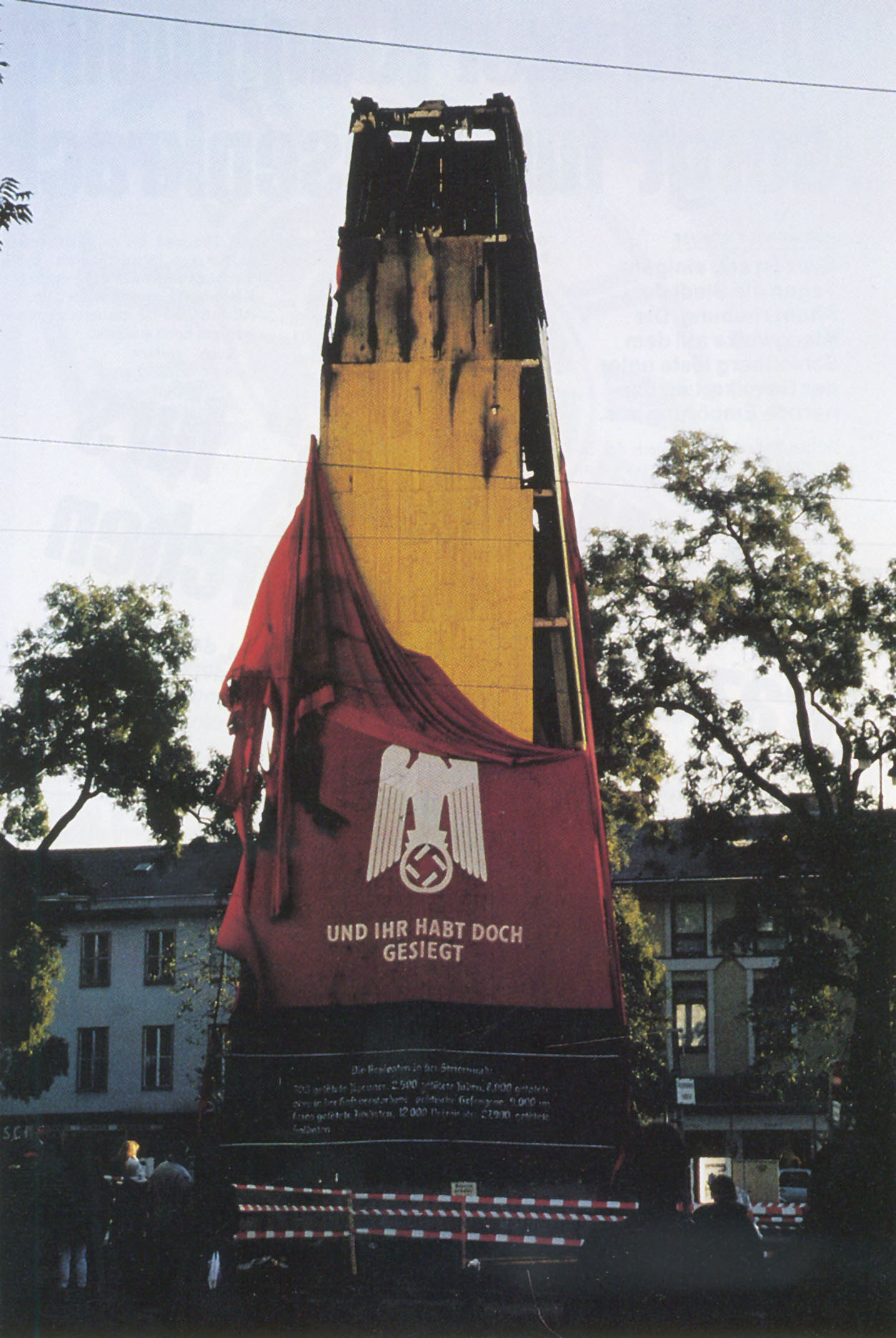
Image: Hans Haacke, Und Ihr habt doch gesiegt (1988), bei Bezugspunkte 38/88, Am Eisernen Tor, Graz, 1988 / Hans Haacke, And You Were Victorious After All (1988), at Bezugspunkte 38/88, Am Eisernen Tor, Graz, 1988
SPECIALIZATION MODULE: ART BASED INVESTIGATION
Convened by Rose-Anne Gush
How do art and architecture confront sites of historical atrocity, and can they contribute to contemporary struggles for justice? This course investigates the dynamic relationship between memory and history, exploring how artists and curators mobilize the past to engage with urgent present-day struggles, often within public space. We will ground our inquiry in specific examples from Graz and the surrounding region, including the Steirischerherbst exhibition "Bezugspunkte 38/88", as well other examples across geographies, drawing connections between global histories and considering the paradoxes of presence and absence at historical sites. The course introduces forms of knowledge production that confront these hauntings, drawing on spectral methodologies to uncover the traces of what has been erased, forgotten, or silenced. Central to our investigation are core questions of method and positionality: how do we conduct historical research on a site? From where do we sit or stand when we think and write about history? We will critically engage with the archive - analyzing its limitations, its power to elevate certain perspectives while silencing others, and its role in defining who is considered a historical actor. We will also explore strategies to resist, rupture, or disrupt its authority.
Through close readings of texts by theorists such as Theodor Adorno, Walter Benjamin, Avery Gordon, Marina Vishmidt, Robert Meister and others, alongside the analysis of artworks and exhibitions, students will develop critical skills in art research, interpretation and production. A combination of theoretical study, archival research, site visits, and artistic research will allow us to collectively explore key questions: What is the difference between "history" and "memory," and how do they collide in the public sphere? What infrastructures make art and memorialisation possible, or hinder it? How can art think through history and memory, and how might it contribute to transformative social and political processes?
Moving beyond the idea of art as a static object, we will frame artistic and curatorial practice as a living social process - a means to interrogate inherited narratives, give voice to subjugated histories, and "work through" the trauma of past and present atrocities. Students will develop research rooted in archives, exploring disciplined and undisciplined methodologies to map and plot counter-narratives. This is a collaborative course that emphasises critical discussion, research, and the development of your own artistic or exhibitionary projects using mediums of your choice. Through this process, you will be encouraged to think critically about the spectral dimensions of history and memory, and to develop appropriate methodologies.